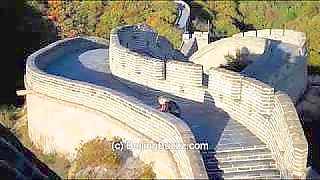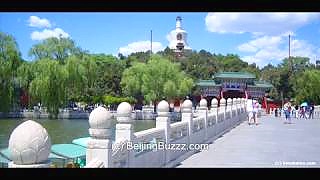
|
The Great Wall of China is an immensely long man-made wall that was built to keep out invaders.
The Great Wall spans nine provinces and its total length is 6,700 km (3,948 miles). The Great Wall extends from ShanHaiGuan (the 'Old Dragon Head'), a seaport along the coast of BoHai, in the east (near BeiDaiHe resort) to JiaYuGuan Pass in GanSu Province in the west. Like a giant dragon, the Great Wall of China winds its way across grasslands, deserts and mountains.
Listed as a World Heritage Site by UNESCO in 1987, the Great Wall ('Chang Cheng' in Chinese) is a true marvel and a testament to the long history of the Chinese civilization.
Today, people from all over the world visit to walk on the Great Wall of China, to stand on a watchtower and view the wall snaking into the distance. This treasure is now protected so that future generations can see the Great Wall with the same wonder and amazement as we do now.
Some parts of the Great Wall have been overwhelmed by the elements. Some parts have been covered by the desert. Others eroded by local people recycling the wall's materials for constructions in their villages. Nevertheless, the Great Wall in large part still stands in silent splendor, enduring the passage of time and greeting the changes of the seasons as it has done for many hundreds of years.
|
 On Taiwan (August 2022)
On Taiwan (August 2022)



